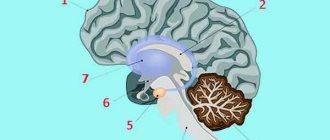Hello, dear readers! Welcome to the blog! I'm glad toyou!
You often meet people in life who have an ordinary worldview or consciousness.
Such people have no need to seek the truth. Often such people outwardly look happier than people with a philosophical approach to life. You can search for the meaning of life and the secret of happiness for many decades, and only at the end of your life come to an understanding of how you could live your life happily. But nothing can be fixed. Or you can use the wisdom of many generations of thinkers, find out what philosophers say about the meaning of human life, get recommendations and practical advice on how to live in this world, making a minimum number of mistakes, without “reinventing the wheel” and “without stepping on the rake” of the darkness of people who lived before you. I hasten to share with you a lecture on philosophy (in an abbreviated form) by the modern philosopher Alexei Tsurkan, thanks to which you will completely change your attitude to life, happiness, worldview and will be able to find your meaning of life and the secret of happiness. You will begin to live differently - easily, naturally and happily!
Those who have a love for wisdom and philosophy will be able to watch the video from the lectures in full (at the end of the article):
- Part 1. Ordinary and philosophical: 2 approaches to life. Ordinary consciousness (video lecture 40 minutes).
- Part 2. Ordinary and philosophical: 2 approaches to life. Philosophical consciousness (video lecture 30 minutes).
So let's get started. Get ready to recognize yourself, just as I recognized myself in many examples. I promise it will be very interesting!
What is an ordinary worldview (ordinary type of consciousness)?
The very name of this topic suggests the need to define the initial concepts.
The very term “ordinary” tells us about a phenomenon that is ordinary, everyday, predictable, simple.
When you and I are trying to understand the phenomenon of the everyday, it is necessary to understand for ourselves that nature, that final cause, as Aristotle teaches about it, which provokes the emergence of this type of consciousness.
The simplest answer to this question will also be the most correct. Here we follow a long-standing philosophical principle, which is called: “Occam’s Razor: do not multiply arguments unnecessarily . Any problem, as a rule, has the simplest solution, and when we ask ourselves what is the origin of the everyday, what is its role in human life, then the answer to this question lies on the surface.
The ordinary arises as a peculiar reaction in relation to the aggressive environment in which a person lives. The environment in which we find ourselves is most often associated with a high coefficient of anxiety , and in order to reduce this coefficient, a person must somehow adapt to this environment.
And most often, the most effective tool for adapting to an aggressive environment is to simplify your life in relationships. Therefore, ordinary consciousness is built on the principle of simplification.
As a rule, simplifying the perception of reality entails more comfortable conditions of existence for a person in it, but at the same time it creates a lot of new problems because it is essentially similar to the position of an ostrich , which, instead of facing the problem and trying to solve it, tries to disguise the problem , most often chatting her up.
Since an individual, a person, in the course of his existence is forced to constantly deal with an aggressive external environment, the coefficient of simplification of the perception of reality may vary. But, nevertheless, as practice and research on this topic shows not only by philosophers, but also by representatives of related humanities disciplines, it is possible to isolate a certain option, a certain model of perception of reality and its components, which is reproduced from generation to generation and is of a constant nature.
2. Ordinary consciousness. Stereotype and dogma. Advantages and disadvantages.
The consciousness of the everyday is a consciousness that for the most part consists of stereotypes and dogmas.
Stereotypic consciousness - advantages and disadvantages.
A stereotype is not always a bad thing. ADVANTAGES:
- A stereotype ensures the transmission of cultural experience, the transfer of information from one generation to another . Customs, traditions, everything that makes up the code of culture is ultimately fixed in a set of stereotypes.
- Among other things, a stereotype provides a person with a certain illusion of the predictability of his own existence, its stability.
- Following stereotypes, a person socializes himself among his own kind, looks for his place in the world , and builds the system of relationships that seems most comfortable to him.
But the stereotype also has negative aspects. DISADVANTAGES are associated with:
- reduced coefficient of responsibility for the action,
- reduced freedom coefficient,
- reduced by the creativity coefficient.
When a stereotype begins to prevail in everyday consciousness, society loses its creativity quotient. It stops generating interesting, new, fresh ideas. This leads to stagnation (stagnation). Which is the first sign of degradation of any social system.
Although from the point of view of the authorities, the top of the pyramid, according to which, ultimately, any human being is structured, the presence of a high coefficient of stereotypical consciousness helps ensure the controllability of the social system , and often the authorities abuse this, trying in every possible way to increase this with the help of propaganda and ideology, of which there are many examples , both in the history of the past and in the history of the present.
The key to social sustainability and the ability of society to develop and be effective is a certain compromise between stereotyping, on the one hand, and creativity, on the other..
An attempt to find a dynamic balance between these two elements should, on the one hand, provide society with a certain coefficient of sustainability, and on the other, allow a person to seek effective answers to the challenges that the external environment presents to him.
This does not always work out, and when the coefficient of stereotypical attitude reaches a critically high point, society begins to degrade and disintegration follows.
Dogmatic consciousness - advantages and disadvantages.
The second component of the ordinary is dogma. The consciousness of everyday life is dogmatic due to the fact that dogma provides very stable stereotypes of interaction between people in society.
Dogma is the acceptance of something on faith, without requiring proof.
ADVANTAGES. Dogma actually deprives a person of the opportunity to choose independently, and this makes his life much easier.
FLAWS. But at the same time, in this world everything is dialectical and the price for this can be very high. Dogmatic consciousness most often leads to a decrease in the coefficient of skepticism and irony.
And skepticism and irony are two characteristics of human psychology that are absolutely necessary for developing creatively fresh, new solutions. Moreover, skepticism and irony are the most effective antidote to any form of fanaticism and extremism. Whereas the presence of dogma as a dominant of everyday consciousness most often generates and entails extremism and fanaticism, which, as we know from history, can be paid at an extremely high price.
As historical practice shows from ancient times to the present day, dogmatic consciousness grows where there is no alternative .
Jean-Paul Sartre
The representative of atheistic existentialism, Jean-Paul Sartre, viewed human existence as a meaningful, free activity. However, in the sphere of labor economic participation, a person does not belong to himself, he does not lead an authentic existence. Life itself, according to Sartre, is a consistent chain of self-denials in which freedom is realized, and it is precisely this that is the only basis for the value and non-value of human actions. Freedom places unconditional responsibility on society, as a result of which it is expressed in a critical attitude towards the world and people.
Jean-Paul Sartre. By Moshe Milner.
The two most important aspirations of a person with ordinary consciousness are TO BE and HAVE.
A person with ordinary consciousness gives an excessive value-semantic status to those things that surround him and strives to accumulate them. Man is designed in such a way that he strives for 2 main things - TO BE and HAVE:
- HAVE - to the accumulation of things, values;
- BE - to prolong your life.
A person, striving to accumulate things that, from his point of view, have meaning and value, actually creates conditions under which his life is built within the framework of an extremely simple schedule, which consists of two straight lines. One of them can be called the term be, the other the term have.
The desire to BE.
If you and I decided to fantasize and ask ourselves: “If a person’s goal in this world were achieved and he lived forever on this earth, would he be happy?” It’s unlikely, but nevertheless, the desire for this, perhaps, permeates the entire human culture. Sometimes this leads to quite extravagant things, for example the emergence of such philosophical phenomena as the philosophy of transhumanism .
This theory is extremely popular in America. It comes down to the fact that man, as he has existed for the last one and a half million years (biological species “homosapiens”), is only an intermediate form of human evolution from a primate to a certain cybernetic organism that will be synthetic in nature, will combine artificial and natural, protein-nucleic matter , artificially created elements.
All this borders on science fiction and is extremely popular among futurists, but, nevertheless, as a kind of cultural installation, this idea is extremely popular in the West, where the technological capabilities for this kind of human modification have reached a fairly high level. All this is the theme of prolongation of existence.
The desire to HAVE.
The second desire of the ordinary consciousness of a person in this world can be conventionally called the term “to have.” This is a very capacious category, which means a person’s systematic appropriation of the surrounding reality. Actually, a person survives, both as a biological species and as a social being, only as long as he appropriates the reality around him.
This can be called an expansion of a certain kind. Expansion, as a person’s ability to satisfy his steadily increasing needs , in which, perhaps, there are no natural barriers other than death.
The concept of “meaning of life” in everyday consciousness. Philosophers about the meaning of human life.
The consciousness of the everyday is a consciousness that is constantly faced with the problem of the “meaning of life.”
The problem of the “meaning of life” in philosophy is perhaps one of the most complex and interesting problems. To begin with, it is extremely difficult to define the concept of “meaning.” Most often, in everyday consciousness, the concept of “meaning” is replaced by the concept of “goal” or “value ”. When you ask a person: “What is the meaning of your life?”, most often he answers this question as follows: “The meaning of my life is to buy a Lexus (for example).” You don't need to be a great philosopher to understand that we are talking about a substitution of concepts.
Philosophy and ordinary consciousness have different views on the meaning of life. If a philosopher were asked to define the “meaning of life,” he would say that “meaning” is the end result of effort .
When applied to human life, “meaning” is the end result of the cumulative efforts of all human life and the problem here is that the meaning of human life is learned only after the process is completed, that is, after human life has ended.
The tragedy of man lies in the fact that the meaning of his life is recognized not by himself, but by those who follow him. And for the person himself, the total result of his efforts ceases to have any meaning when he dies.
An extremely optimistic and even comical point is that in society everyone is constantly in a state of competition and competition. However, the loser, the loser, has a strong, powerful ally - time itself, which ultimately neutralizes any success.
Time eliminates and erases all the cumulative results of human efforts. Therefore, the philosopher, to the question “who wins in this fight from the point of view of eternity?”, would say that the loser breaks the bank, because the winner has something to lose and he loses, the loser has nothing to lose and as a result of these losses, the loser loses much less.
Several supporting examples from human history.
There is a place in Rome where on March 15, 44 BC, Gaius Julius Caesar was killed. Meetings of the Roman Senate were held there. Caesar was killed by his closest associates, friends, conspirators, inflicting many dagger blows on him. Now two tall cypress trees grow in this place so that descendants will not forget this place. This is the result of the total efforts of this person, this is the result of his life’s journey. There is, in fact, a large irony factor in this.
Caesar became a chicken salad, Napoleon became a cake with creamy sauce.
This is the lot of human glory on this Earth and as a result we can come to the following intermediate conclusion.
When we pose the problem of “the meaning of life”, and the problem of the meaning of human life is relevant especially in the plane of the everyday, we come to the conclusion that:
- meaning, if it exists at all, is revealed not to the person himself, but to those who follow him;
- in the end, any meanings are erased by time and, from the point of view of eternity, absolutely nothing remains.
- it all makes for quite a dramatic perspective. Because a person living in the sphere of the everyday needs a stable feeling that all his daily efforts have some kind of meaning and significance.
In the sphere of the ordinary person:
- believes in values
- believes in the value of social institutions,
- believes that planting a tree, giving birth to a son, building a house matters.
A person sacrifices his time, his life for the constant maintenance of these beliefs and thereby gains moments of happiness, without which, perhaps, existence in the sphere of the ordinary would be completely unbearable .
IMPORTANT! This is not to say that all these things don't matter. On the contrary, depending on what point of view, what view of things a person chooses, he formulates the system of values in which he is comfortable.
Value is the ability of the phenomenon of an object to satisfy a person’s needs, and if a person’s needs are fully satisfied by this set of things that he considers significant for himself, it means that this person has a feeling of comfort in being. Periodically, moments of happiness visit him.
It was not for nothing that the wise Greeks called happiness the term “eudaimonia”, that is, a visit to a person by a good god and a good demon. They understood that happiness does not last long, it can be short-term and most often is recognized only after it has ended .
Ludwig Wittgenstein
Ludwig Wittgenstein is an Austrian philosopher and logician of the 20th century, perhaps one of the most incomprehensible and mysterious thinkers. He considered the main task of philosophy to be the clarification of language. He also wrote that everything that happens in personal life can be important, but life itself has no meaning different from these things. Indeed, personal life has meaning in the form of events, actions and results that occur throughout a person's journey. Everything that happens to us is important to our loved ones, the people who love us, it is thanks to them that we feel needed.
Ludwig Wittgenstein. By Moritz Nähr. Austrian National Library
The question of the meaning of life worried not only ancient Greek philosophers, French and German thinkers, but also the sages of China and India.
Statements by philosophers about the meaning of life.
I present here my favorite statements by philosophers about the meaning of life. You can find other wise sayings of great people about life, statements of great people about the meaning of life on this useful site , which I myself always use. In total, the site contains more than 1000 statements about the meaning of life.
Socrates
The Athenian philosopher Socrates saw his purpose in encouraging people to search for truth. He saw the meaning of life precisely in the purification, treatment and development of his soul, because accumulated wealth cannot replace virtuous deeds. Even in the face of death, the ancient Greek thinker did not renounce his views and adhered to them until the very end.
Jacques-Louis David. "The Death of Socrates"
7.Resume. The main theses about ordinary consciousness.
Summarize. From the article you learned about what an ordinary worldview, consciousness, and attitude to life are. What are its advantages and disadvantages? What is the meaning of life for a person with ordinary consciousness and what do philosophers say about the meaning of human life. Why can numerous accumulated things crush a person?
Here are the main theses about ordinary consciousness:
The everyday worldview (consciousness) is inevitable, since it is a natural result of a person’s efforts to reduce the anxiety coefficient from being in a rather aggressive environment .
The everyday is based on stereotypes and dogmas . This is both good and often bad.
In the everyday there is a low coefficient of skepticism (doubt) and irony . An ordinary person most often does not know how to ironize and doubt, since both of them turn out to be something uncomfortable for him.
Ordinary consciousness is motivated by the desire to live as long as possible and have as much as possible .
Ordinary consciousness is subject to hypersocialization, since in this a person seeks consolation , support and support for his own life, actually parasitizing on the existence of another and at the same time receiving blows from him.
And now it’s time to learn about an EFFECTIVE ALTERNATIVE TO THE ORDINARY APPROACH TO LIFE - ABOUT THE PHILOSOPHICAL APPROACH.
Everyday and philosophical consciousness stem from the same source. Ultimately , both are a consequence of a person’s efforts to reduce the pain syndrome from being in the very reality called life . The ordinary solves this problem in the ways you learned about above.
Philosophical ways of solving the same problem can be divided into two aspects:
- metaphysics, that is, building a reality parallel to the one in which a person lives;
- a practical philosophy with a set of recommendations that are available to any person if he wants to develop the right attitude towards life and live this life relatively calmly and confidently, if possible, without making the mistakes that ordinary people make within the framework of everyday consciousness.
You will learn about the philosophical type of consciousness and attitude to life with a list of practical recommendations developed by wise philosophers of previous centuries from the 2nd part of the article (from the 2nd lecture devoted to philosophical consciousness and approach to life).
See you on the blog pages!
I wish you to find your path, your attitude to life, your happiness, your meaning in life!
Alena Kraeva
SMARTBLOG
Rene Descartes
Rene Descartes, a French philosopher and sociologist, believed that the main thing in life is the principle of moderation, according to which one should not rush to extremes, make hasty decisions, it is necessary to think everything over rationally and find the right path. According to his philosophy, the old is easy to destroy, but before doing this, you need to think about the consequences. The natural scientist respected the traditions and customs of various peoples, this speaks of his high moral qualities. Descartes' life rule stated the desire to change, first of all, oneself, and not the world around him. After all, man is the highest mind, and only he can control his thoughts and rule over them.
Rene Descartes. Author Franz Hals









